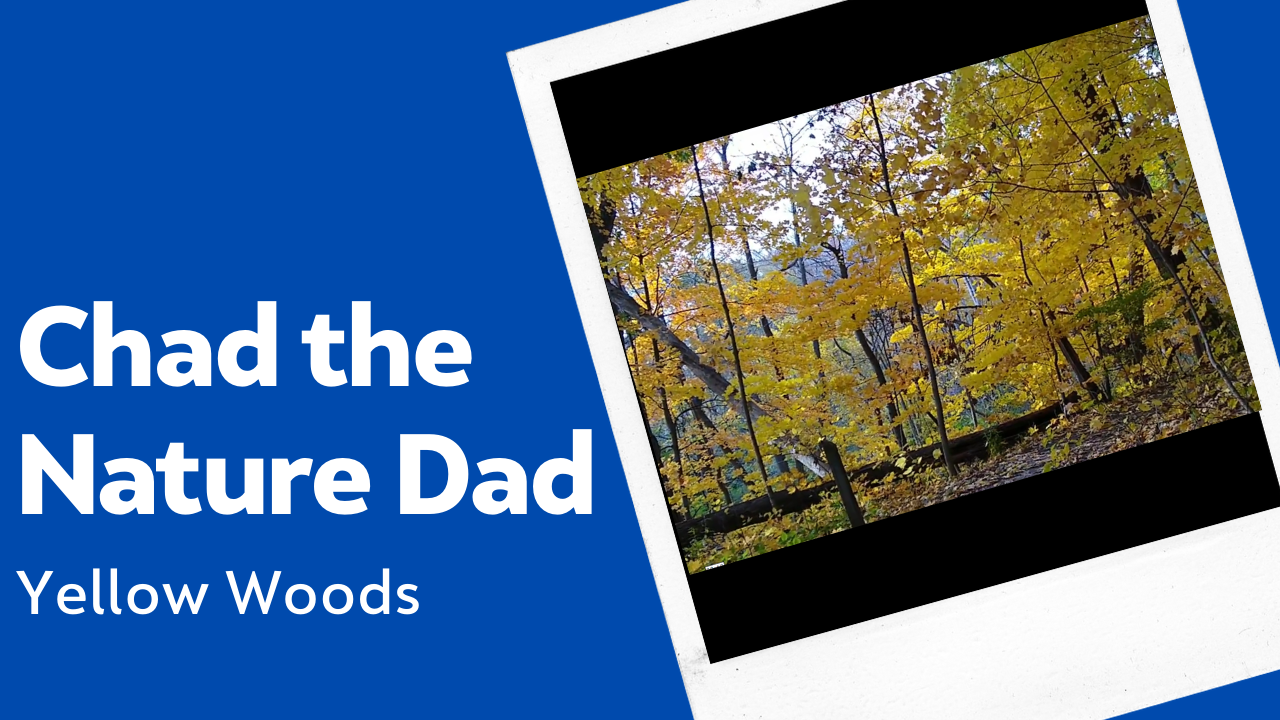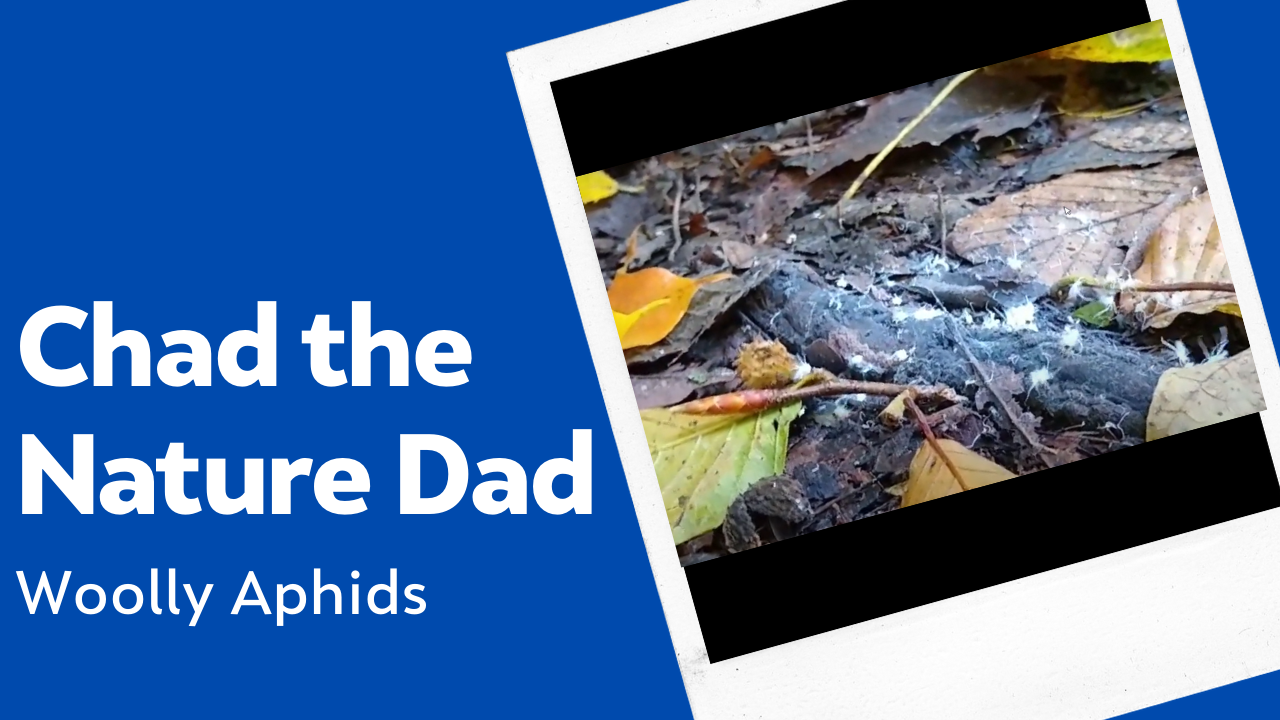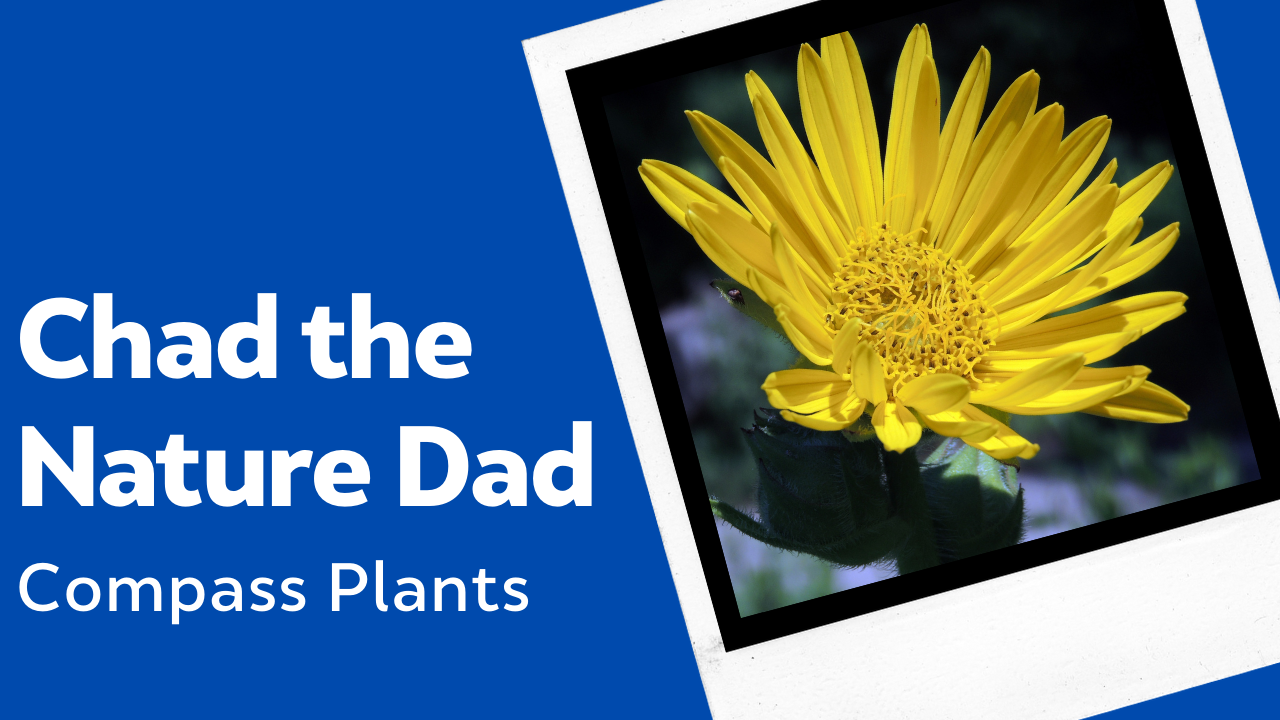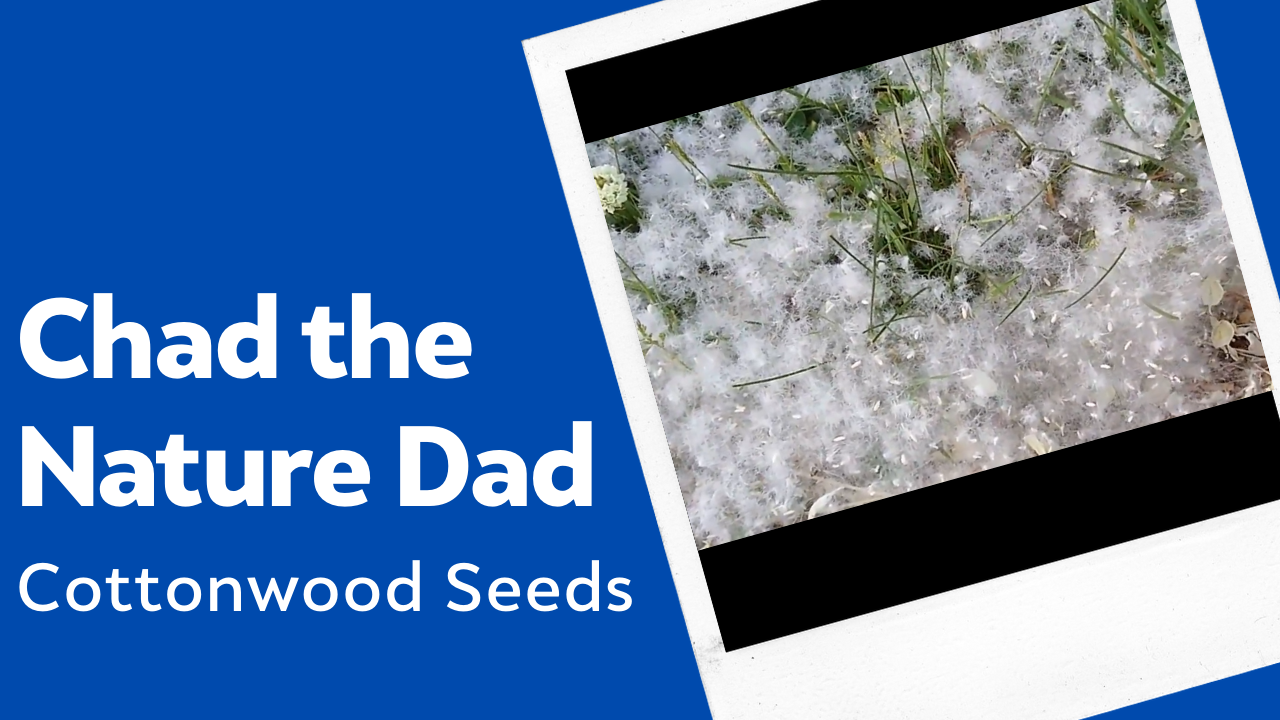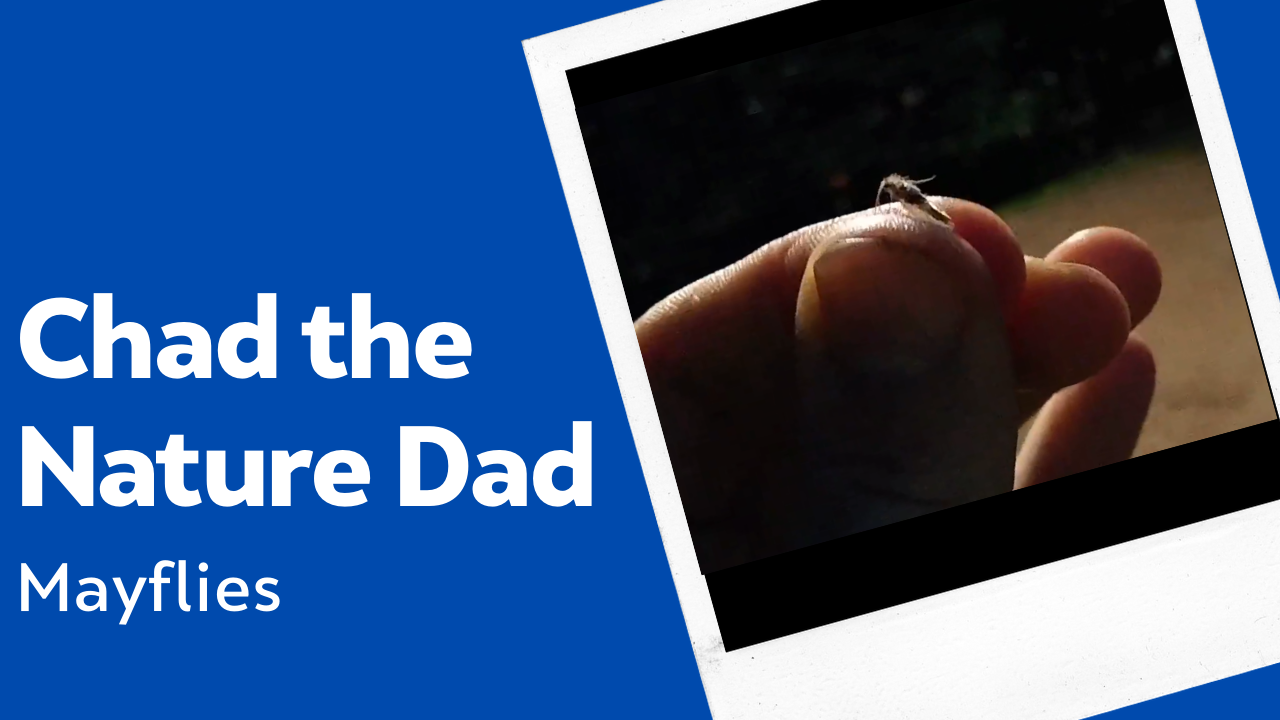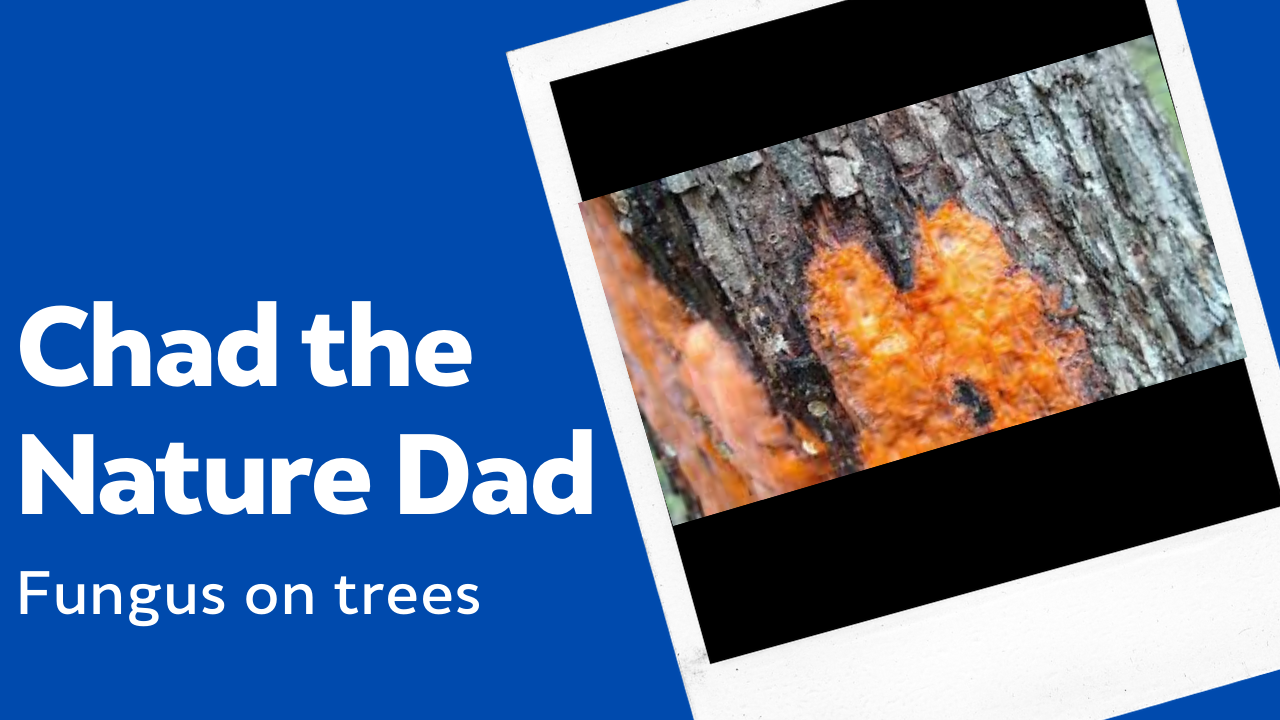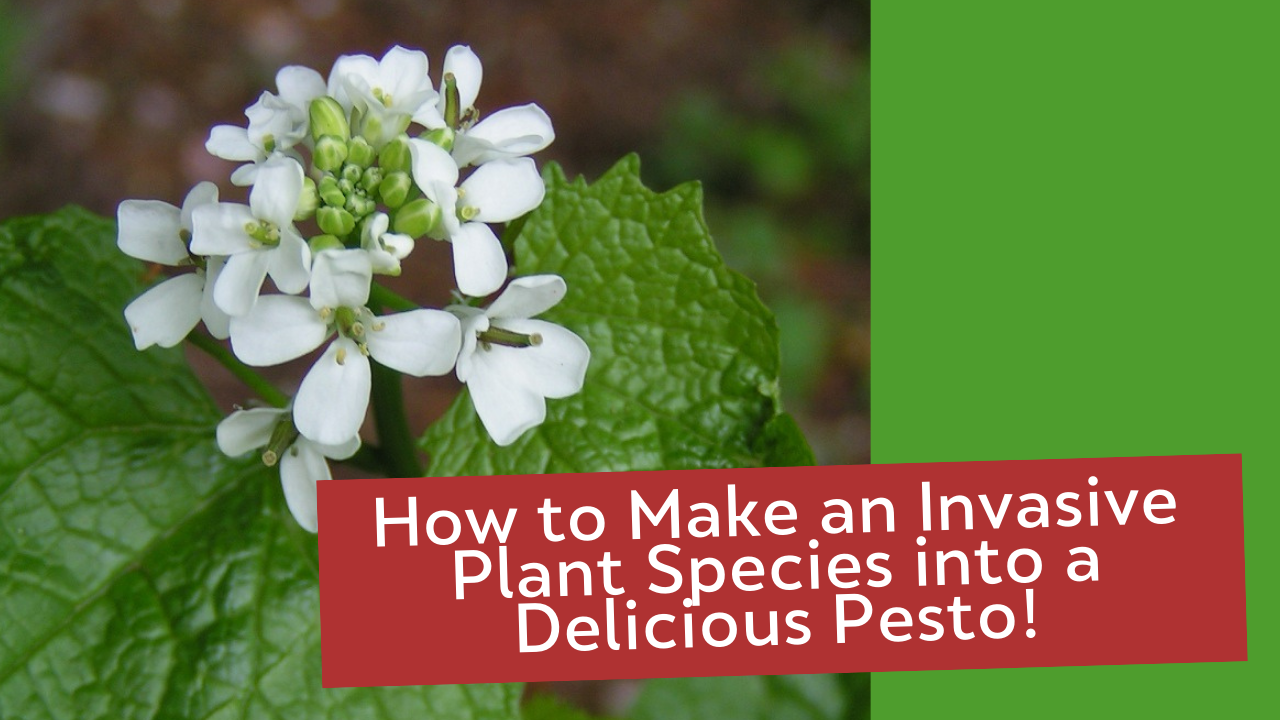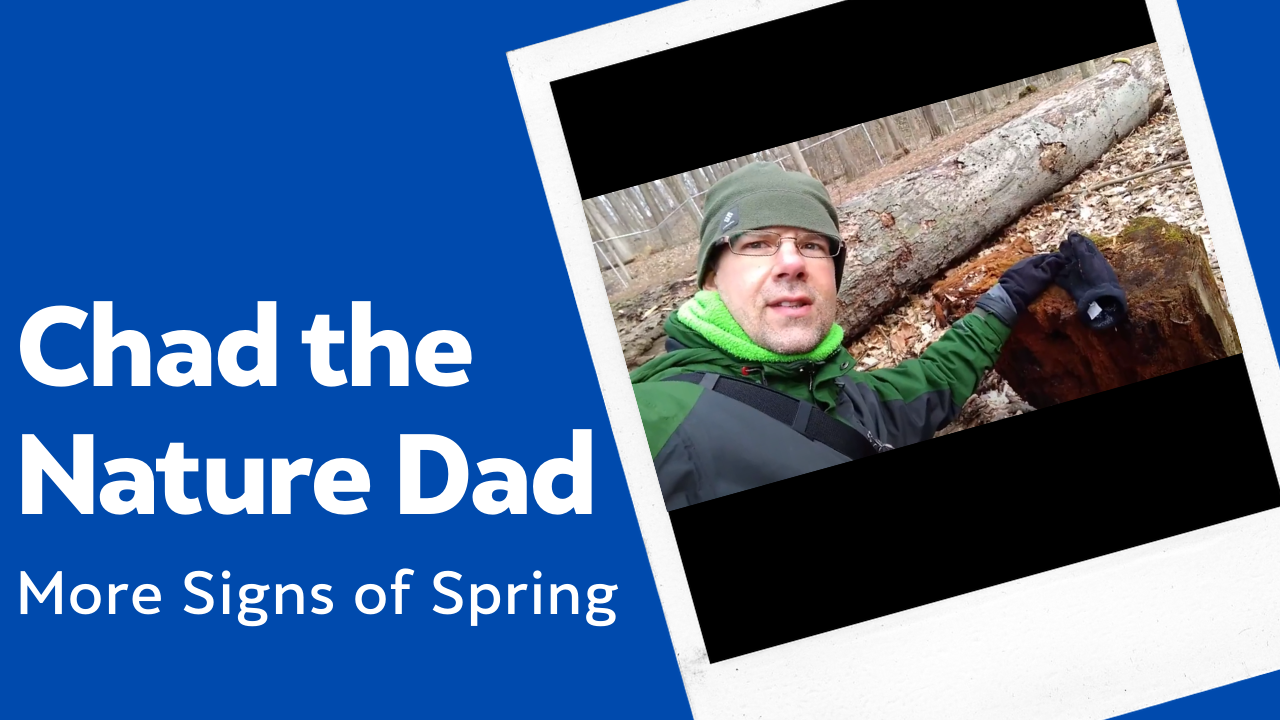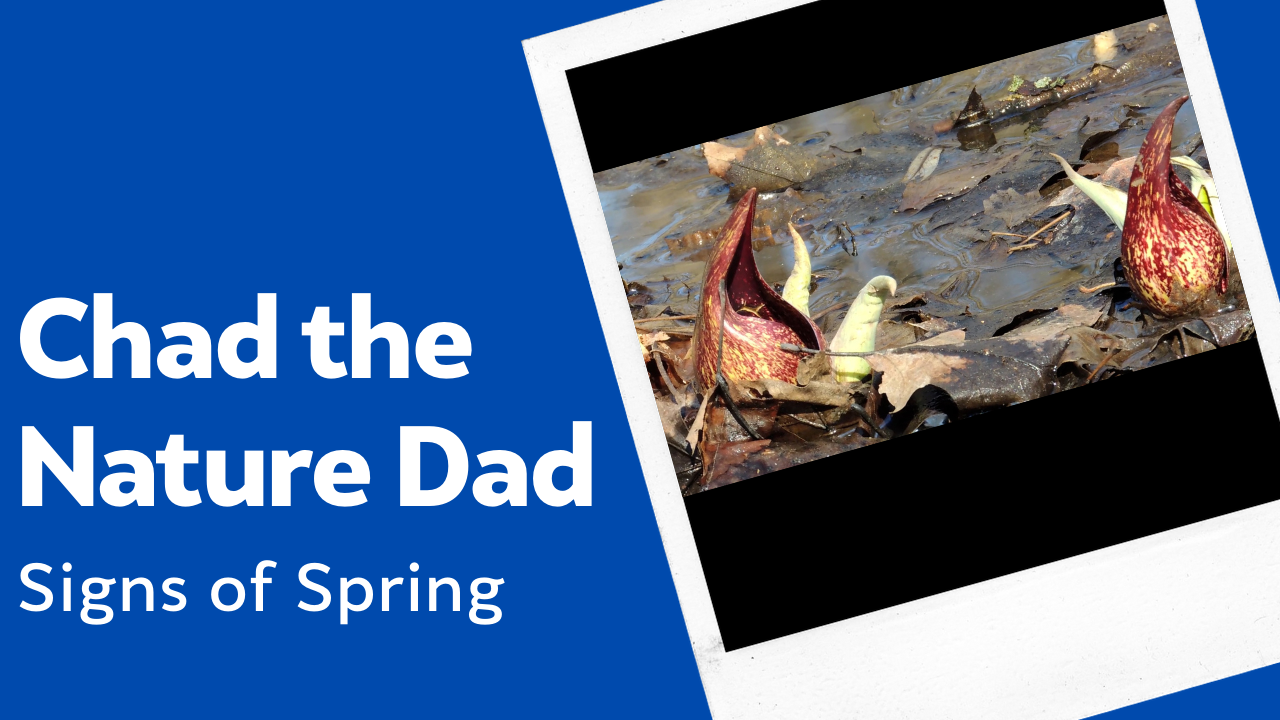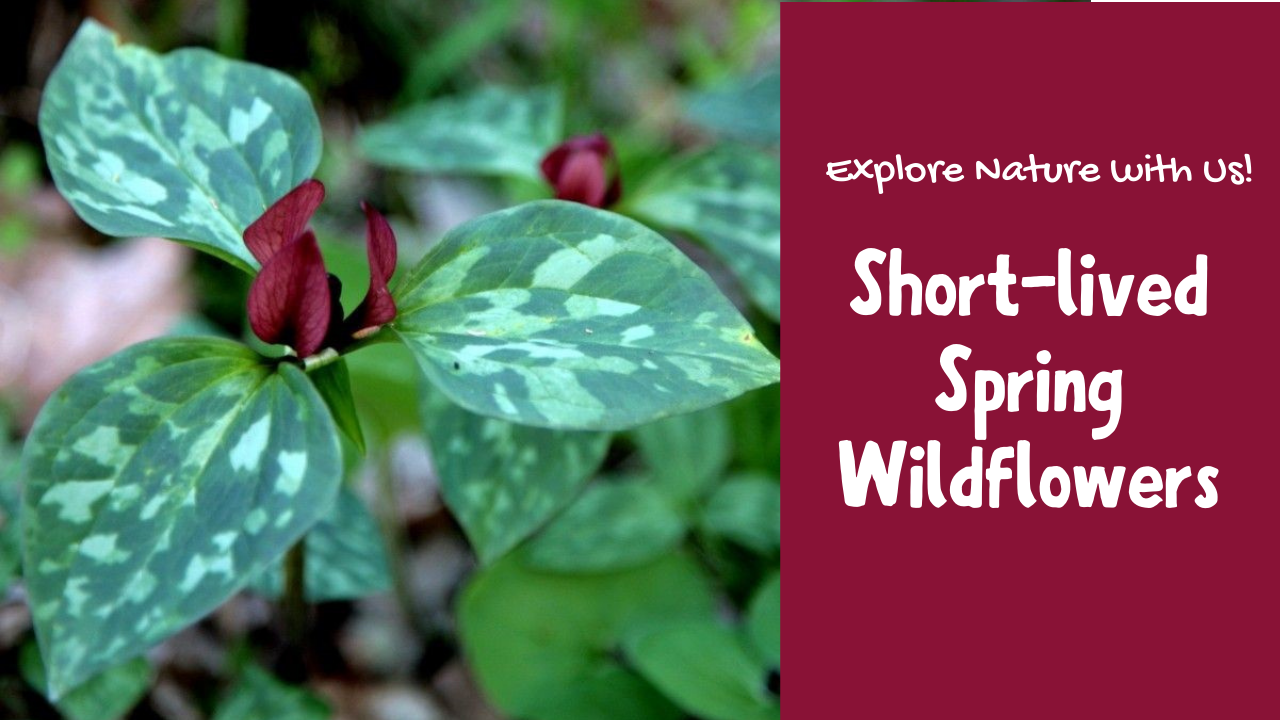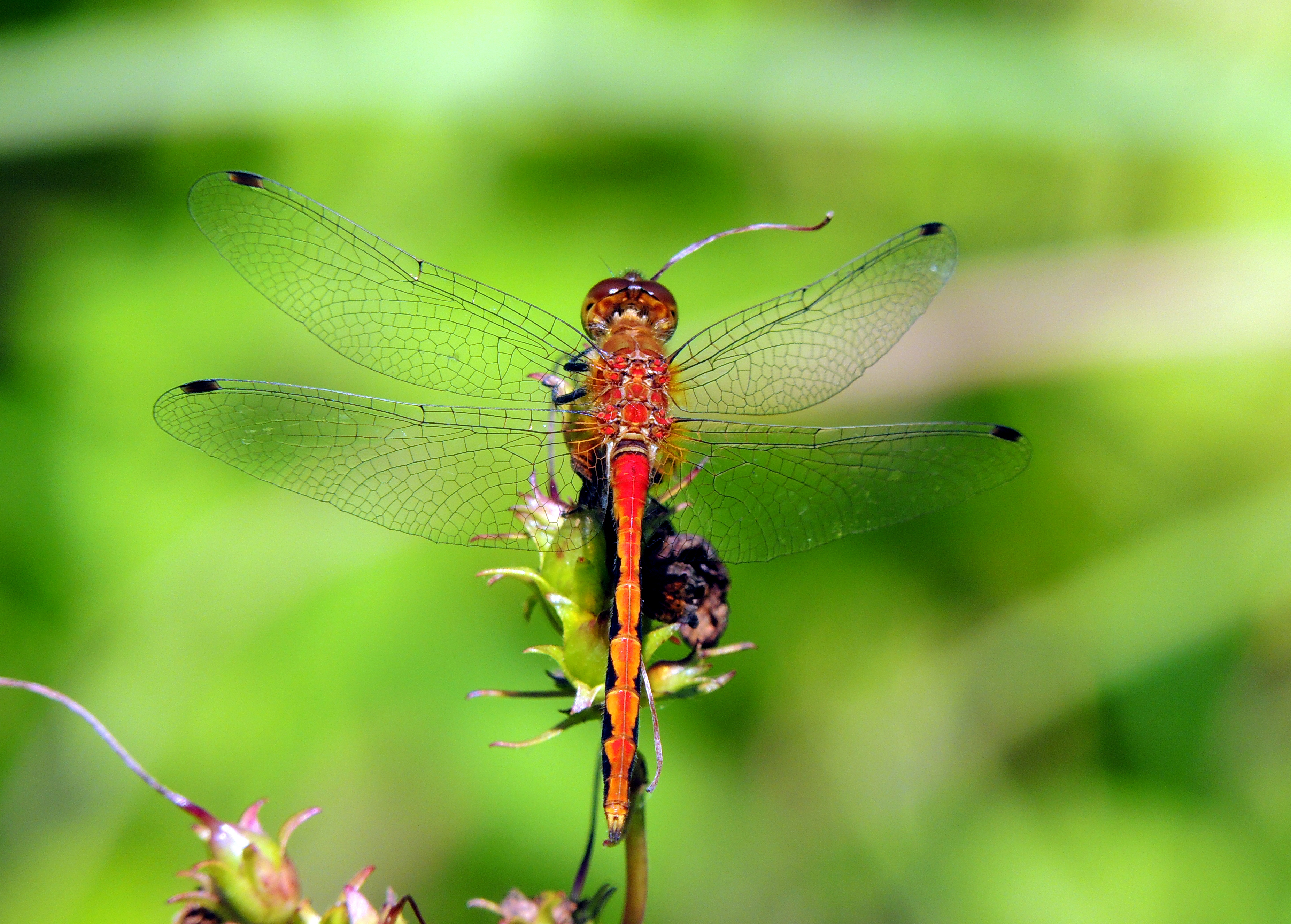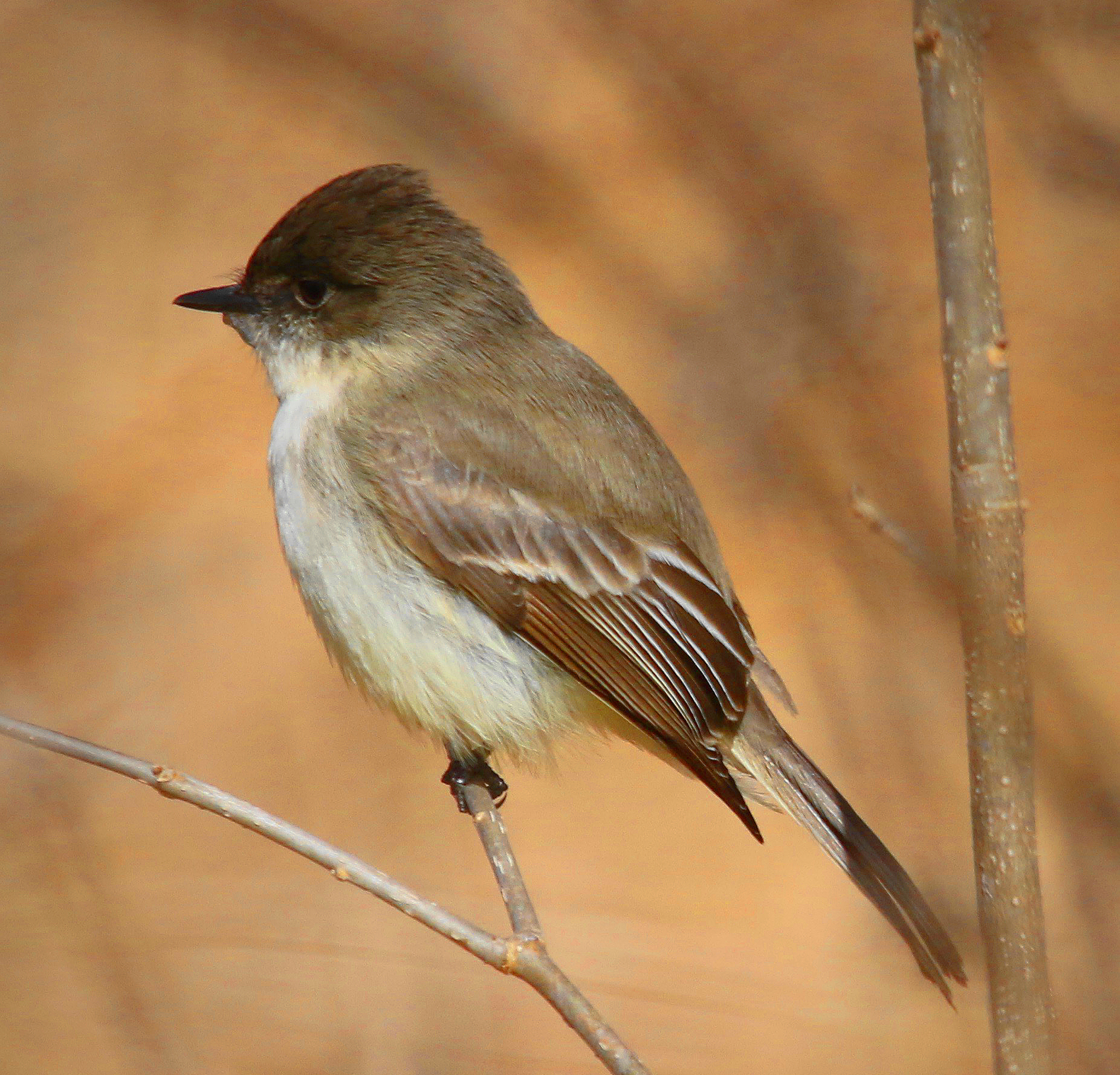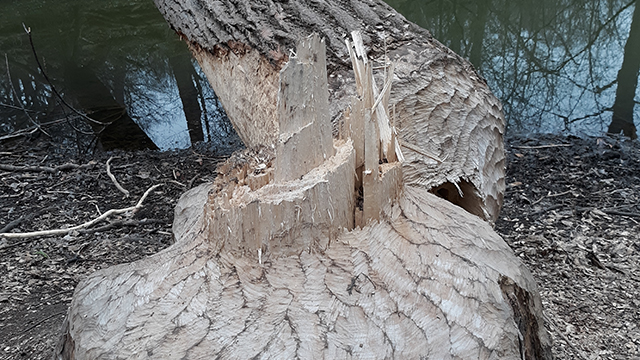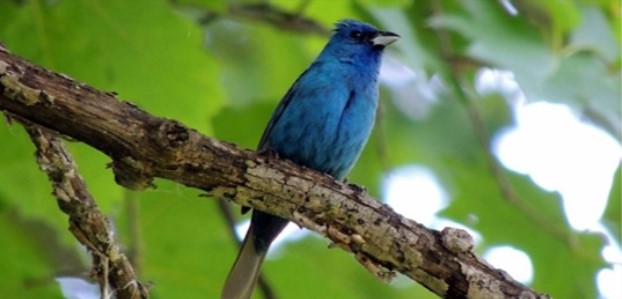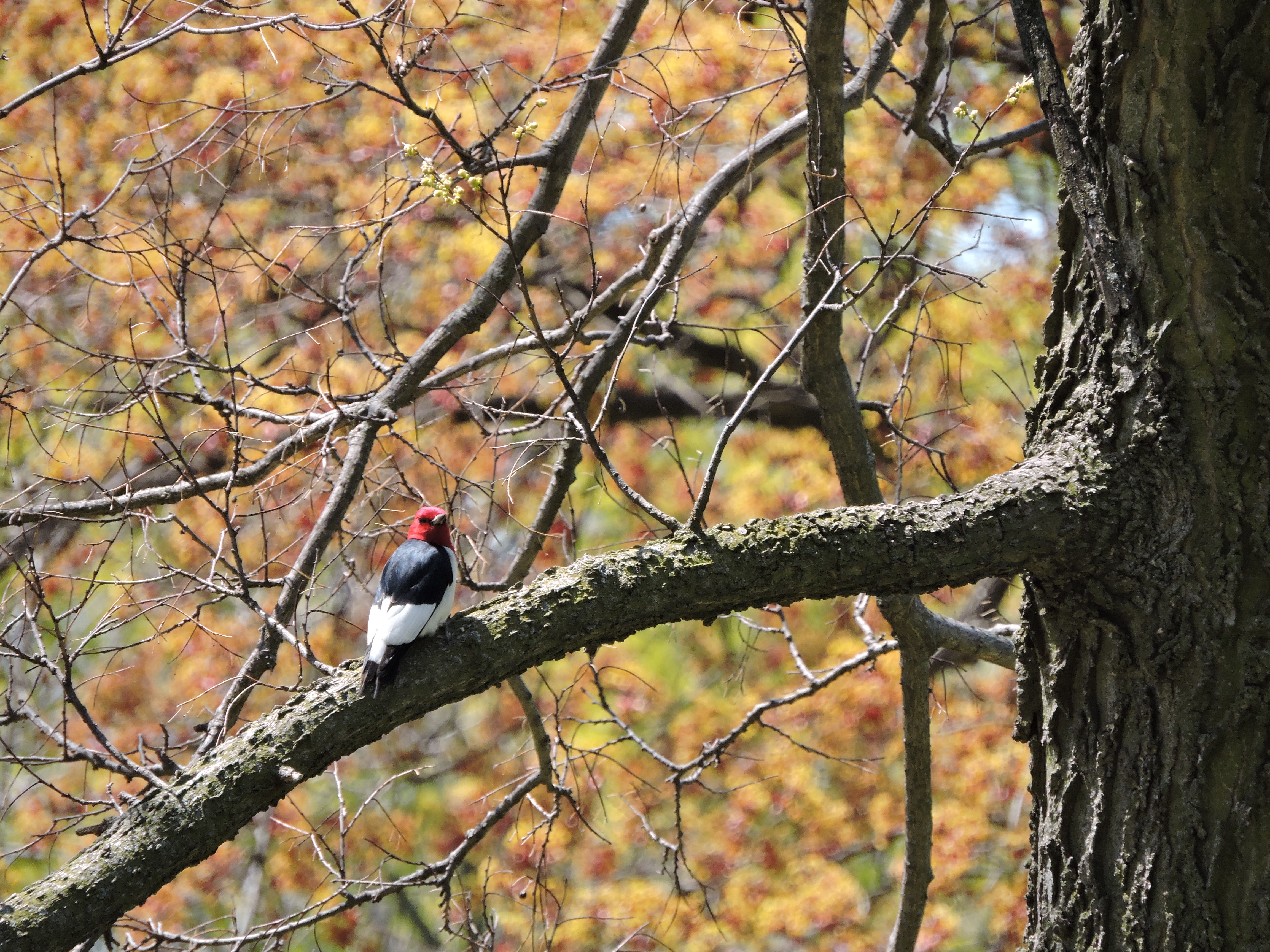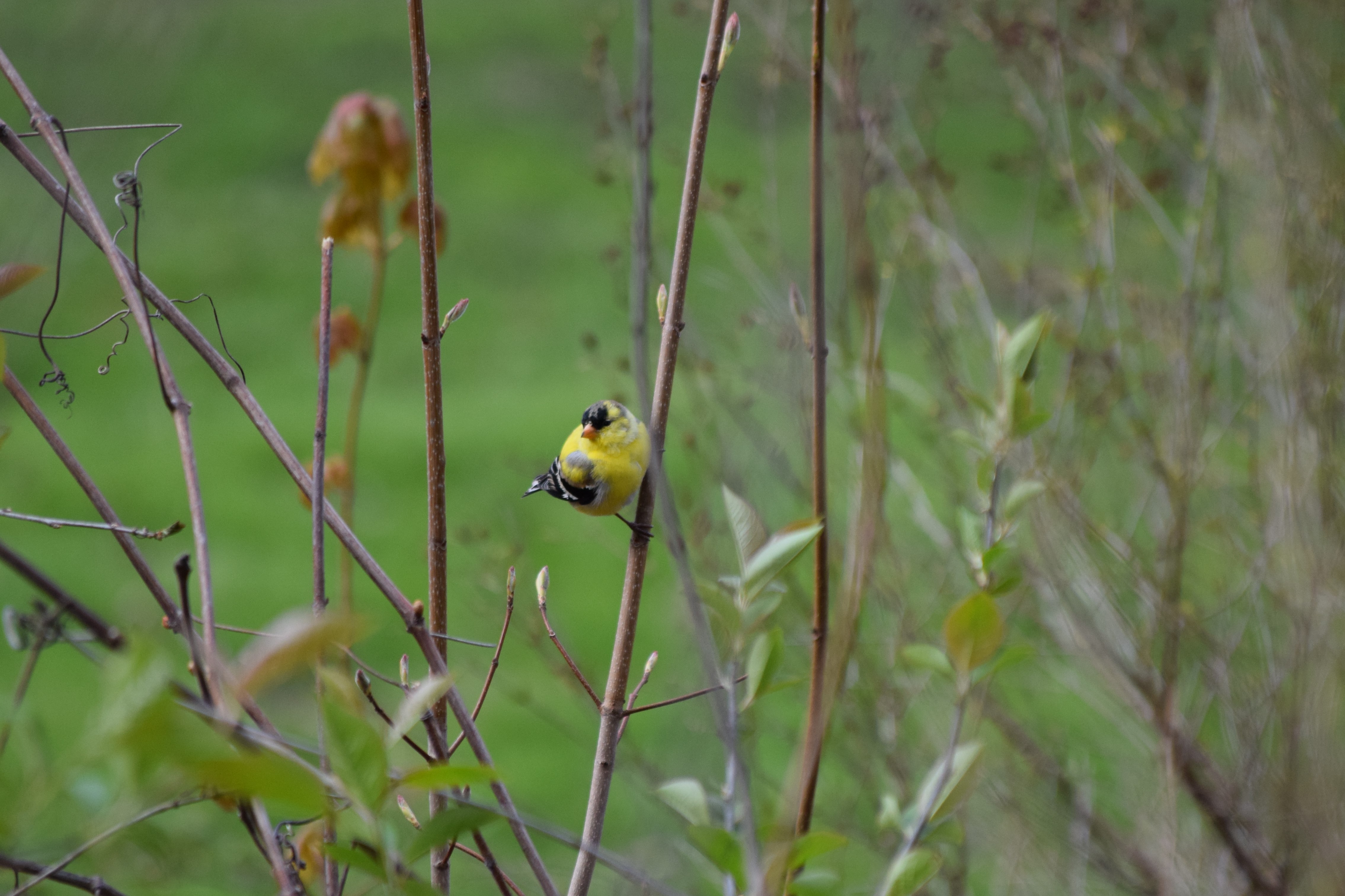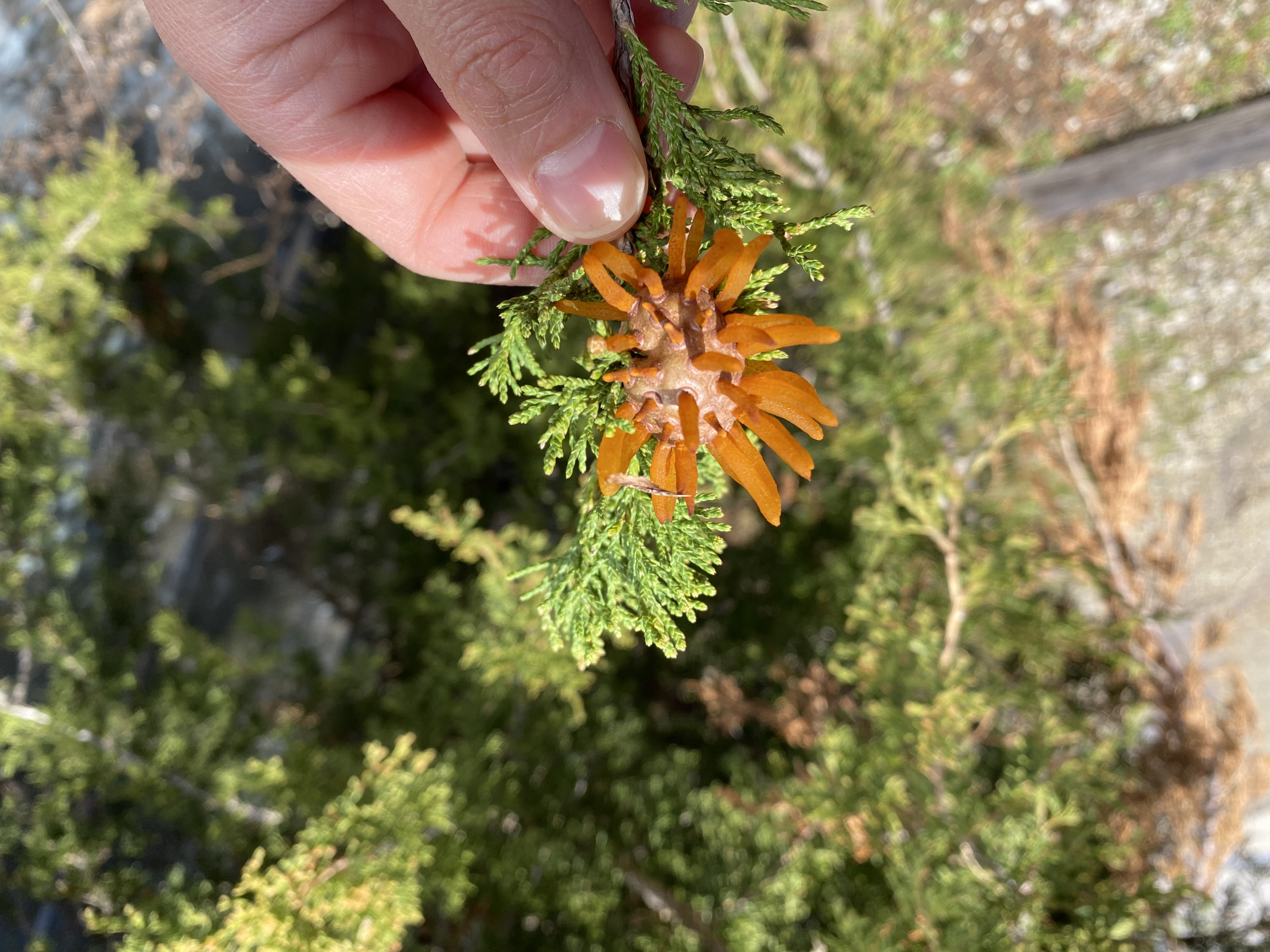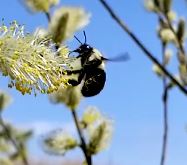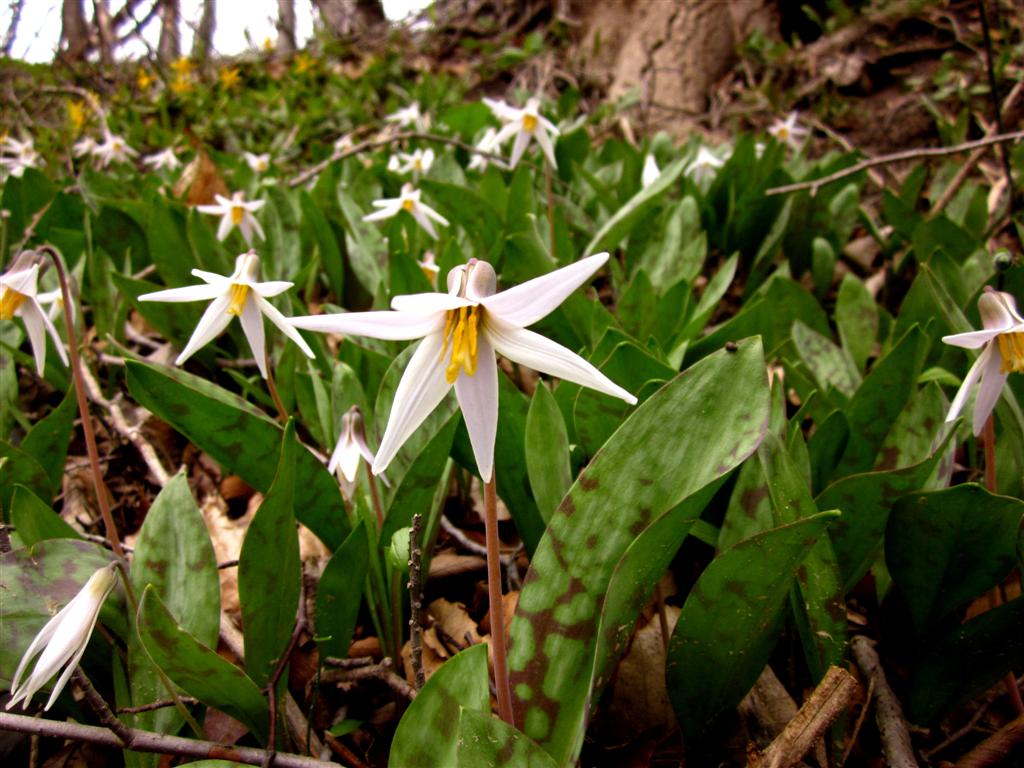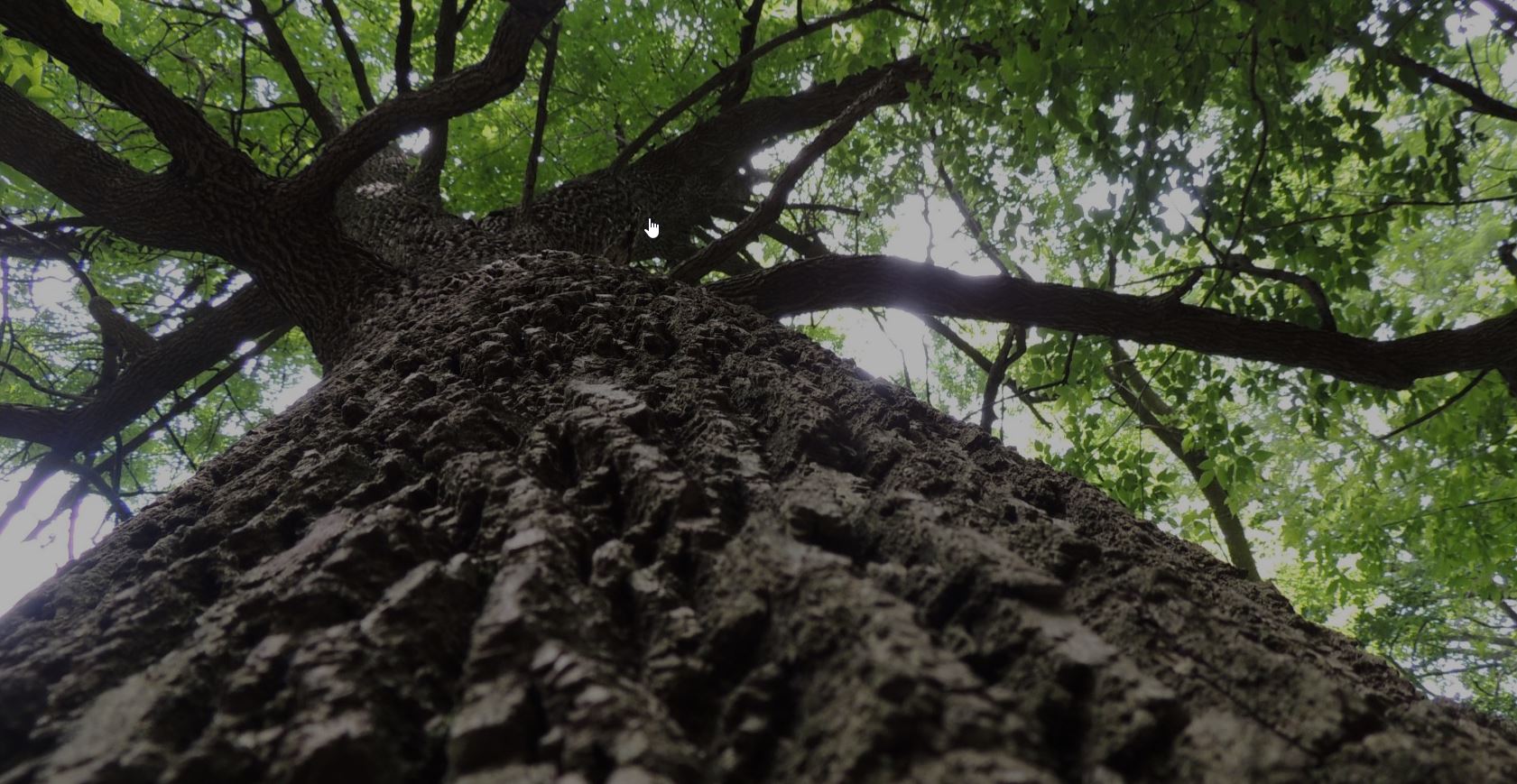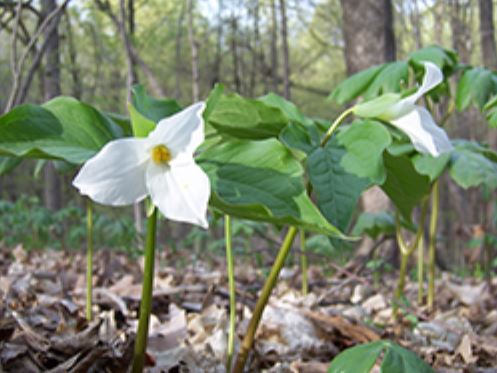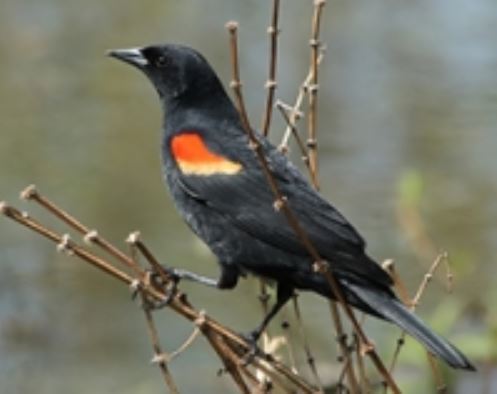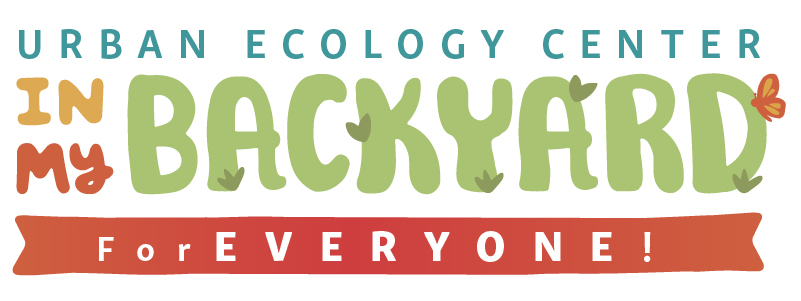

Toddlers, kids, teens, and adults will all find something to love here. Through video series, self-guided hikes, and more, the whole family will find inspiration to learn about and get out into nature here.
Autumn is in full swing and the leaves are past their peak in most parts of the state. Still, plenty to see if you are in southern Wisconsin and if you are me, this is one of my favorite times of the year. I call it the yellow woods, come learn why. Enjoy!
More
Have you ever seen bits of cotton that seem to be waving at you from the leaves of the ground? It is actually an insect called the woolly aphid. Check out this video to learn why they wave around like they just don't care.
More
There are so many amazing plants out in the prairie! In this next episode, Chad the Nature Dad shares some cool facts about the compass plants, one of his favorites. Check it out, as it might become your favorite too and maybe even help you find your way!
More
Summer has arrived and with the beginning of summer starts the tree seed season. One of the first trees to drop their seeds are the cottonwood tree. You might see them floating around, collecting on sidewalks and trails. Join Chad as he explores this very cool but short-lived phenomenon.
More
While up north, Chad the Nature Dad just happened to go out one night when there was an eruption of mayflies. And just as nature intended it was indeed just the beginning of June when they emerged. Often, all the mayflies in a population mature at once (a hatch), and for a day or two, mayflies are everywhere, dancing around each other in large groups, or resting on every available surface.
More
While walking in the woods looking for spring migrants, Chad the Nature Dad noticed there were many trees covered with a bright orange coloring. Upon some further investigation, Chad discovered it was actually a fungus/yeast growing on the trees. Check it out!
More
'Tis the season for Garlic Mustard Pesto! Please remember to be an ethical nature explorer. While garlic mustard is an invasive species and will never be on the at-risk list in North America, it’s still illegal to pick or harvest ANY plant or berry from a park. Look for this crawling green in your backyard and enjoy this vegan garlic mustard pesto!
More
Spring continues to emerge in this episode of Chad the Nature Dad. Chad discovers some sweat bees emerging from their winter homes and Kendall finds some spring treats in the woods.
More
The deep snowpack is almost melted, the temperatures are rising and nature has some sure signs that winter is on its way out. Join Chad as he explores two of the first signs of spring, skunk cabbage, and red-winged blackbirds.
More
Early spring brings us more than just sorely missed warmer temperatures with more daylight. For a short period of time, when conditions are just right, spring ephemerals begin to bloom. These unconventional plants grow, reproduce, and die back extraordinarily quickly, all before the prime growing season.
More
The coldest months of winter are some of the best to hear owls hooting in Wisconsin. The most widespread North American owl is the Great Horned Owl - join Danny to learn five facts about this elusive, adaptable bird.
More
Hello friends, We have been blessed (well in my opinion) with a lot of snow this year. All that snow helps to reveal who has been hanging out. Join me as I explore some animal tracks in the woods near my house and at Washington and Riverside Park. Bundle up and see what you can find.
More
In the heart of the city, it's easy to miss the endless bird songs we took for granted throughout the warmer seasons. But in the absence of those loud, lovely summer songs, we are able to hear the wintery mating calls of area owls that can be difficult to find by sight.
More
Although it is winter, our honey bees on the roof of Menomonee Valley are still in their hive, staying warm. How do they do it? That and more fascinating facts about the Western Honey Bee on this episode of Five Facts!
More
In this instructional video, community programs educator José Basaldua shares the best tips and tricks for having a fun sledding adventure in the snow!
More
Holes over here, holes over there. There are holes in trees everywhere. Holes play a key role in providing animals places to find shelter and food. Join Chad and Kendall as they explore holes in trees from a wide range of perspectives.
More
Learn how to make a sun catcher with Environmental Educator, Brynne Drohan. You can use any natural materials such as pinecones, leaves, and fruit. Put it outside on a tree. Admire the beauty but don't be too upset when it melts. Animals will enjoy your goodies!
More
Winter is here and with the landscape covered in snow, the bright red of the Northern Cardinal really stands out. Danny's got five facts about these iconic birds in today's episode.
More
There were almost 400 observations that were submitted in iNaturalist spanning 45 different species from September through November for our Fall Phenology Challenge. Next up is winter! Here are the species to keep an eye out for during these coldest months.
More
Chad has been seeing murmurations of starlings flying over the Hoan Bridge on his way home from work. Join Chad to learn about what a murmuation is and witness this spectacular natural phenomenon!
More
Hey everyone; Van from the Washington Park UEC here. This month, I want to share with you some music that our earth and our climate inspired. Music is one of the most popular mediums to share our ideas and emotions as a human race. This is a list of 10 of my favorite songs about the earth and its people (in no particular order).
More
Danny is hanging out in their backyard today with Ruthie, who discovered a Virginia Opossum a couple of nights ago. Join us as we learn more about this marsupial and its unique defense mechanism of "playing dead" in this Five Facts video.
More
It's a crossover episode! Chad the Nature Dad and Kendall found a blue-spotted salamander while out adventuring in the woods and Danny shares five facts about this amphibian species.
More
The leaves are changing color, but have you noticed they seem brighter than usual this year? Learn about why this phenomenon happens as well as some of the best places in Wisconsin to see beautiful fall colors in this blog post.
More
Looking to stir some creative juices this fall? Well look no further, learn how to make mandalas, a form of outdoor nature art, with Chad the Nature Dad and Kendall.
More
Just in time for Halloween, join Danny to learn five facts about a species of spider with a nickname that is very seasonally appropriate: the pumpkin spider!
More
Check out this fun experiment that uses a carved pumpkin and a mixture of ingredients to make the pumpkin “ooze” a foamy substance. For this experiment, you will need: Hydrogen peroxide,dish soap, food coloring, active dry yeast, warm water, garbage bag or towel, and a carved pumpkin.
More
If you're carving a pumpkin for Halloween, hold onto those pumpkin seeds! Follow along with Erin in this quick video to create a crunchy, salty, tasty snack - roasted pumpkin seeds!
More
Before you go for your next hike, check out these ten tips for a successful adventure from Community Programs Manager Mike Larson.
More
Danny is hanging out by the Menomonee River today during peak salmon migration season. Let's learn five facts about one species you can see migrating right here in Milwaukee: the Coho Salmon.
More
Spiders are an important part of our world. They help control pest populations and have many amazing adaptations to help them. Join Kendall and Chad the Nature Dad as they explore spiders!
More
Fall is here and that means preparations for winter have begun! Join Danny to learn five facts about some of the busiest mammalian hoarders around: chipmunks!
More
While hiking along the bluffs of Lake Michigan and then in a kayak, Chad noticed that some bluffs were receding quickly. Join Chad in an adventure on the lake as he explores the erosion of our bluffs along Lake Michigan.
More
With their eggs laid, Carolina Grasshoppers have now completed their life-cycle and the adults will soon die. Join Danny in the Riverside Park prairie to learn five facts about these adaptable, widespread insects.
More
Follow along with this step-by-step guide for creating a unique bird feeder that you can hang in your yard.
More
Learn with Alex LaBonte how to can tomatoes so that you can preserve that sweet summer taste throughout the winter!
More
With few trees in the prairies, the plants there have adaptations that allow them to bask in the hot summer sun. Join Kendall and Chad the Nature Dad as we explore some of these plants as well as have a little bit of fun!
More
Ethan Bott shares the results of our summer phenology challenge and gives instructions for continuing to document the changing plant and animal life this fall.
More
It's fall migration and that means flocks of Canada geese will be flying overhead as they make their way south. Join Danny in some ideal Canada goose habitat to learn five facts about these familiar birds.
More
Fall migration is upon us, but did you know that most birds migrate at night? Learn about how and why many birds are nocturnal migrants in this blog post.
More
Grab some plant parts and follow along with these three different methods to make a beautiful, plant-pressed craft.
More
Macroinvertebrates live in ponds and lakes and rivers all around us. In this "How To" video, join Alex LaBonte as she explains the best way to search for, study, and identify macroinvertebrates!
More
Follow along this video for a step-by-step guide on how to make a firefly string lights craft, so you can appreciate the beauty of fireflies at all times of the year.
More
The Darling Underwing is a member of the underwing family of moths, which exhibit a number of unique adaptations. Join Danny in their own backyard and learn five facts about this elusive moth species.
More
Did you know that there are more than 160,000 different species of moths worldwide? UEC Intern Elizabeth Gamillo introduces you to the wonders and scientific importance of moths.
More
Join Erin Whitney as she explains all the best tips and tricks to throw a great moth party, so you can document all the cool species of moths you find in your own backyard.
More
Discover the plant Common Plantain in Lake Park with Environmental Educator Kelli Johnson! Then, learn how to prepare this nutritious and delicious plant for tea and as part of a recipe.
More
Snapping turtles are some of the oldest creatures still on our planet. Their origins date back about 90 million years! Join Chad the Nature Dad and Chad the Nature Dad’s Dad as they explore a snapping turtle that was crossing the road here in Milwaukee.
More
A group of summer campers discovered a pair of particularly interesting beetles. Meet Ted and Jessica, the stag beetles!
More
Summer fun has arrived! Let's explore what's living in the wild spaces of Milwaukee and meet the spectacular wildflowers of summer with this self-guided hike through the Milwaukee Rotary Centennial Arboretum!
More
In this episode of Chad the Nature Dad, we go back to spring when the call of frogs can often be heard as they emerge from hibernation. Join Chad and Kendall as they explore some wetlands on the Ice Age trail and then in the woods here in Milwaukee. Enjoy!
More
Join us for a guided dragonfly planter craft! Happy crafting!
More
Ants are interesting creatures with the ability to lift objects many times their weight. But even more interesting is how ants all over the world work together in colonies to build homes, find food and nourish their young. Join Chad the nature Dad when he discovers a large ant colony in a log at Washington Park.
More
Danny is joined by a stuffed turkey in the animal room at the Menomonee Valley to share Five Fascinating Facts about Wild Turkeys.
More
The monarch population has been decreasing over the years. You can help improve its population by raising them at home. Watch this video created by environmental educator, Alex LaBonte. The experience of raising monarch butterflies can be a great learning tool for kids as they can learn about metamorphosis and see with their own eyes the whole cycle of the monarch's life.
More
Keep an eye out for mulberry trees in your yard or in some parks nearby so you can make this delicious mulberry jam recipe cooked by environmental educator, Kelli Johnson! Kelli shows us all the process, from harvesting to cooking!
More
Enjoy this blog from Environmental Educator, Jose Basaldua, about how nature is the ultimate canvas for inspiration. We hope it can also inspire you to create art based on what you see in nature.
Blog content in English and Spanish
More
Join Chad the Nature Dad and Kendall as they find, catch, and explore water striders. These super cool creatures can be found in most bodies of water and have some cool adaptations that help them survive! Look for them on your next adventure by the water. Enjoy!
More
Environmental Educator, Alex LaBonte, teaches us how to make a worm bin. Composting food waste has many benefits over sending it to a landfill. It can also be great for enriching the soil of the gardens.
More
join the “Summer Phenology in Milwaukee 2020” project on iNaturalist! Learn how to get started with this blog written by Ethan Bott, GIS and Field Data Coordinator
More
Ever wondered how to skip a rock? Join Chad the Nature Dad on a beautiful spring evening down at Lake Michigan to learn how. Enjoy!
More
This week Chad and Kendall went out to the woods on that very rainy Sunday what they found was a flooded forest floor. It created some new streams and opportunities for some fun exploration. Enjoy!
More
Environmental Educator, Regina Miller, finds a lot of cool animals and plants in her backyard and nearby areas. Here are her recent cool finds.
More
Leave your reference material (especially audio recordings) at home and let Environmental Educator Matt Flower lead you through a bird experience!
More
Red-Headed Woodpeckers are a welcome sight in southern Wisconsin and are much less common then your backyard Downy and Hairy Woodpeckers. The last time a Red-Headed Woodpecker was seen in Washington Park was in 2016 and we just saw one at the park (mid-May 2020)! Look for this beautiful bird drilling for insects and also catching insects in the air like other insect eating birds.
More
American Bitterns are masters of camouflage typically hiding in the tall grasses along water bodies.They are often heard and not seen and their call is a deep gulping noise. Photo taken at Washington Park by Environmental Educator, Alex LaBonte.
More
American Goldfinches are one of the strictest vegetarians amongst birds as their diet consists almost entirely of plant based food. Photo taken at Washington Park by Environmental Educator, Alex LaBonte.
More
Join Chad the Nature Dad as he explores animal tracks in the woods. Get out there and see what tracks you can find especially after a good rain or snow.
More
What's a gall? Environmental Educator, Miguel Santos, explains about this growth on the cone of red cedar trees. (Contenido en español también)
More
On a warm sunny afternoon Kendall and Chad took a bike ride down to Lake Michigan to find some interesting rocks and other cool items. Check it out!
More
Learn about the importance of bumble bees and the video that captured
the first recorded sighting of a queen bumble bee of any kind in Milwaukee County this year and one of the very first in the state for this year. Blog written by Ethan Bott, GIS and Field Data Coordinator, and Jeff Veglahn, Land Steward at our Menomonee Valley Branch.
More
While playing during a beautiful sunset one evening, Kendall found a little mammal running across a parking lot. Upon further inspection we discovered a furry baby vole!
More
Create your own nature journal from things you can find in house and backyard! (Contenido en español también)
More
Let's explore the wild spaces of Milwaukee and meet the wonderful wildflowers of spring! Self-guided walk through Riverside Park by Environmental Educator Matt Flower.
More
Join Chad and Kendall in their walk at Cedar swamp where Chad talks about swamps and wetlands. In this video, you will also learn about cedar trees and their leaves. Pay attention to Kendall's tip and take notes for your future hikes!
More
Let's see what these mallard ducks are doing in this tiny puddle of water!
More
Environmental Educator Brynne Drohan found this along the Menomonee River!
More
Environmental Educator, Regina Miller, found this brilliant green moss in a local park!
More
See Pasqueflowers, Virginia bluebells and Sharp-lobed Hepatica discovered by Land Stewards Drew Vandegrift, Michaela Rosenthal and Kim Forbeck.
More
Come along on a "virtual nature walk" with our Environmental Educator, Chad Thomack, and hear stories about his recent discoveries in nature!
More
Get to know the trees of Riverside Park in this insightful self-guided walk made by Environmental Educator Matt Flower.
More
Excellent recommendations from our staff on local, accessible natural areas where you can enjoy nature right now!
More
Welcome to Chad the Nature Dad! Let's see what we can find under some logs.
More
You have a chance to contribute to spring phenology data! Learn more information with this great article written by Ethan Bott, GIS and Field Data Coordinator
More
Environmental Educator Tory Bahe tells about the Science of Appearance.
More
by Research and Community Science Coordinator Maggie Steinhauer
More
Check back soon for more great content!
If you are enjoying the Urban Ecology Center In My Backyard, consider making a donation to support our work.
DONATE TODAY
#UECinmybackyard



